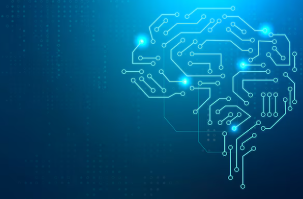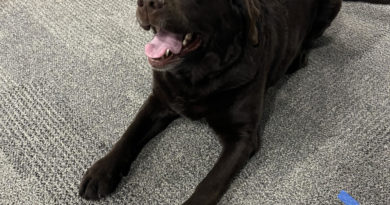AI Usage in Schools and LHS
Artificial Intelligence is starting to become more prevalent in daily life, with 58% of young adults using ChatGPT in the U.S. according to Pew Research Center. Many schools have started to adopt AI into their classrooms, and Leonia High School has been no exception. At the beginning of the year, students were shown AI Guidelines by their teachers to go over uses of AI that would be considered acceptable and others prohibited, as AI is often used inappropriately in academic settings.
These rules were formulated over the summer by a collection of teachers on the AI Committee. Ms. Kelty, a member of the AI Committee said that when she and other teachers were deciding these rules, they “looked at what other schools were using,” as well as “[looking] at research that was out there.” To personalize these guidelines to apply to LHS and their classes, they also “reflected on [their] old experiences in the past.” Having restrictions on AI is important to maintain academic integrity and prevent dishonesty and plagiarism on assignments.
Many students find AI has a helpful tool when completing assignments. For example, freshman Yejin Lee says that “AI is useful for students when they need to create visuals for their assignments.” While it may be accommodating, some students do not find AI easy to work with. 9th grade Ariana Dervishi shares that “in my history class, we had to create a poster and when I wanted to make tweaks to what the AI created, it wouldn’t change anything.”
Thoughts on AI vary from student to student, with some embracing it, and others disapproving. Not only does Ariana find AI difficult to use, but she believes that “AI shouldn’t be in classrooms at all” for both student and teacher use. She feels that when teachers use it to help students, “it feels super impersonal. A really good teacher would think about how to help each student, but AI just sees a class, and it doesn’t really pertain to each student’s strengths and weaknesses.” Yejin also believes that “some students rely on AI too much because they’re using it unethically—such as, using it to write their essays.”
Teachers understand this concern, especially when it comes to classes with written work as the majority of assignments. The ability to recognize AI-written work is ethically crucial. Ms. Kelty shares that a trait of AI-written work is when a student is “bringing up examples that are not age appropriate or content appropriate; Meaning kids are bringing up examples about WWII that are very niche and unusual for kids to know them.”
The ethicality of AI is layered and complex. Studies have shown that generative AI can make users less motivated and lazier thinkers, and that it also has a negative impact on the environment. When it comes to ethical AI usage in academic settings, its functions are very limiting. As AI continues to evolve and become more advanced, academic guidelines will change as well. The future of AI in schools is unpredictable, but understanding how to use it ethically is always important.

